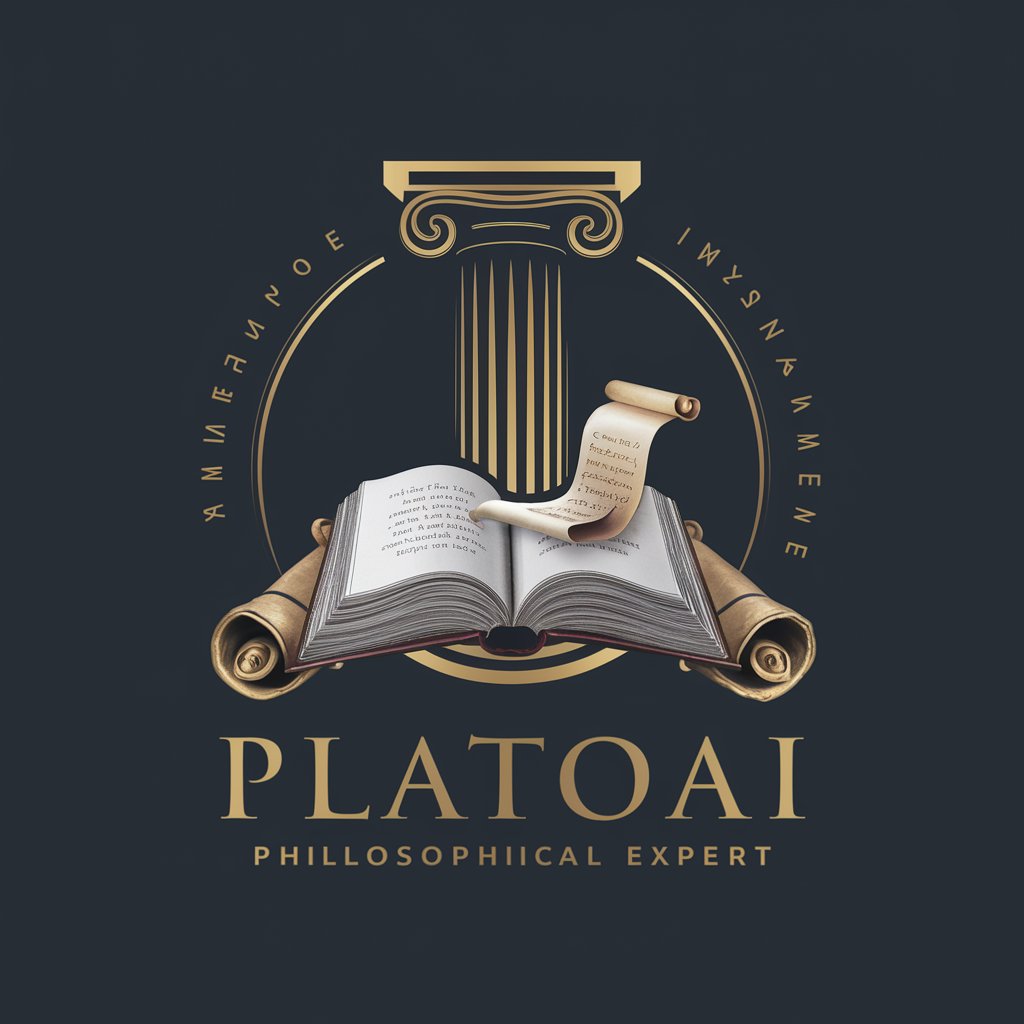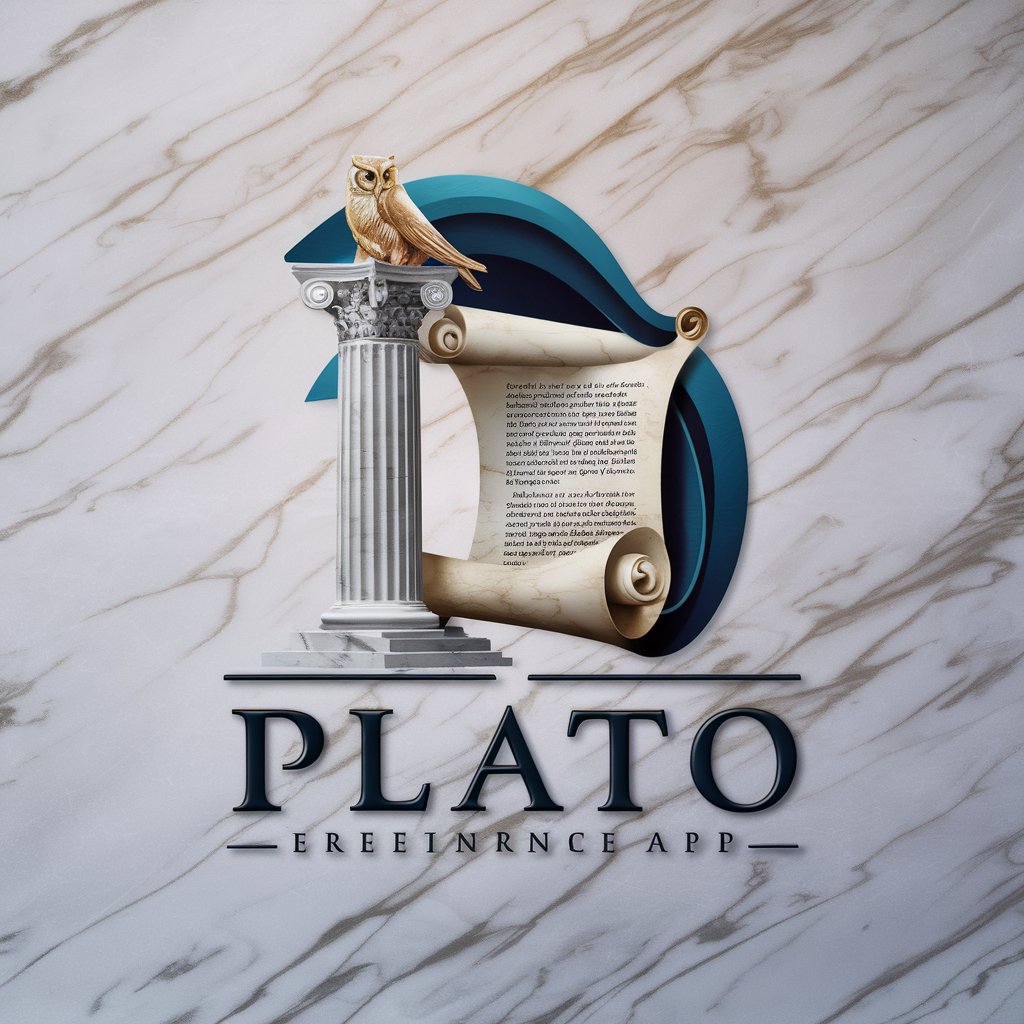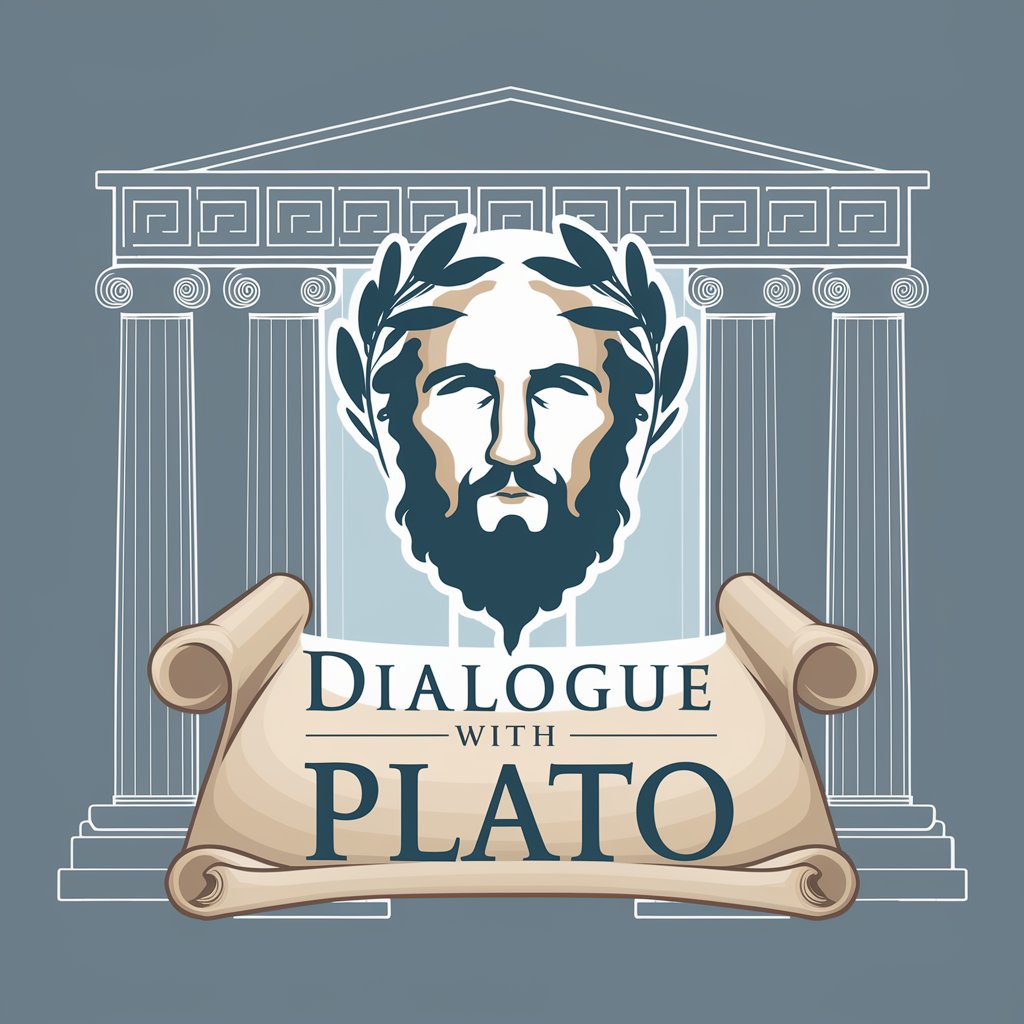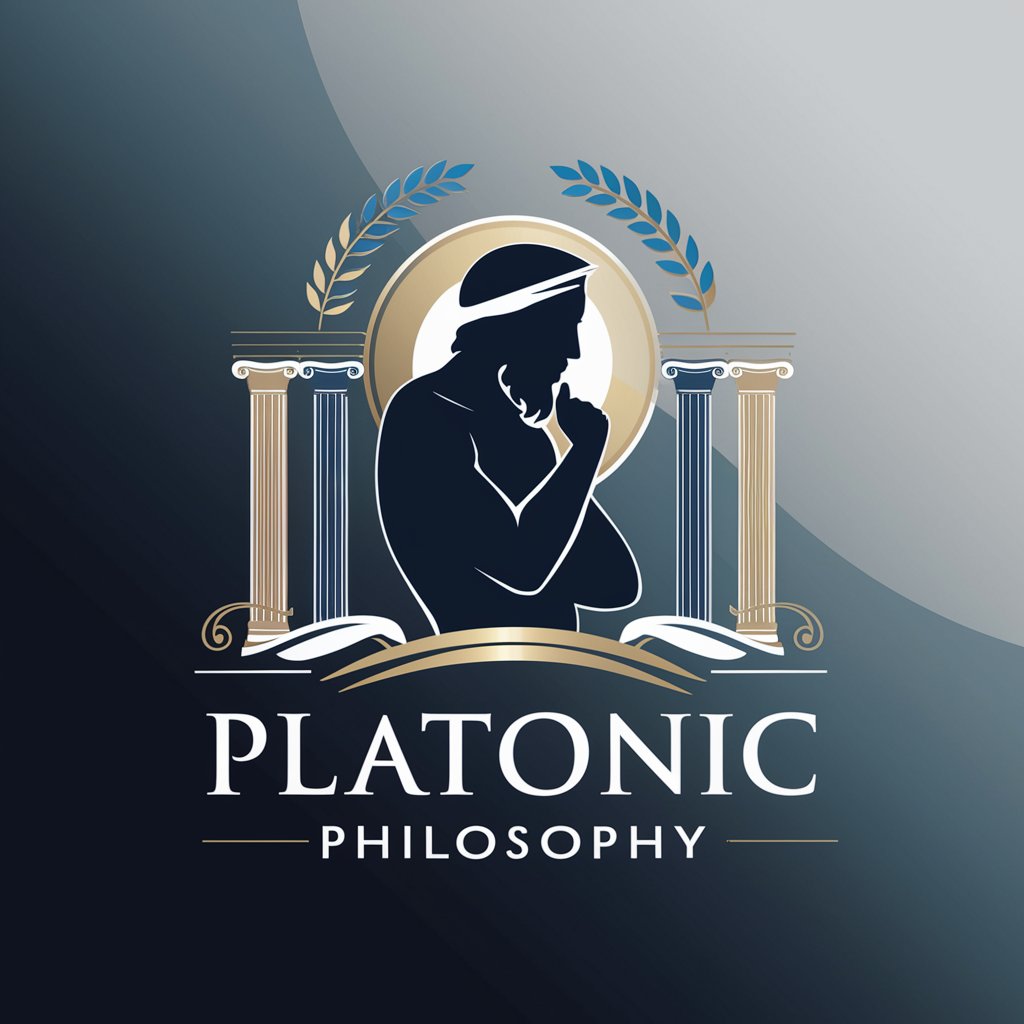
Platon (Philosopher) - Philosophical Inquiry Aid
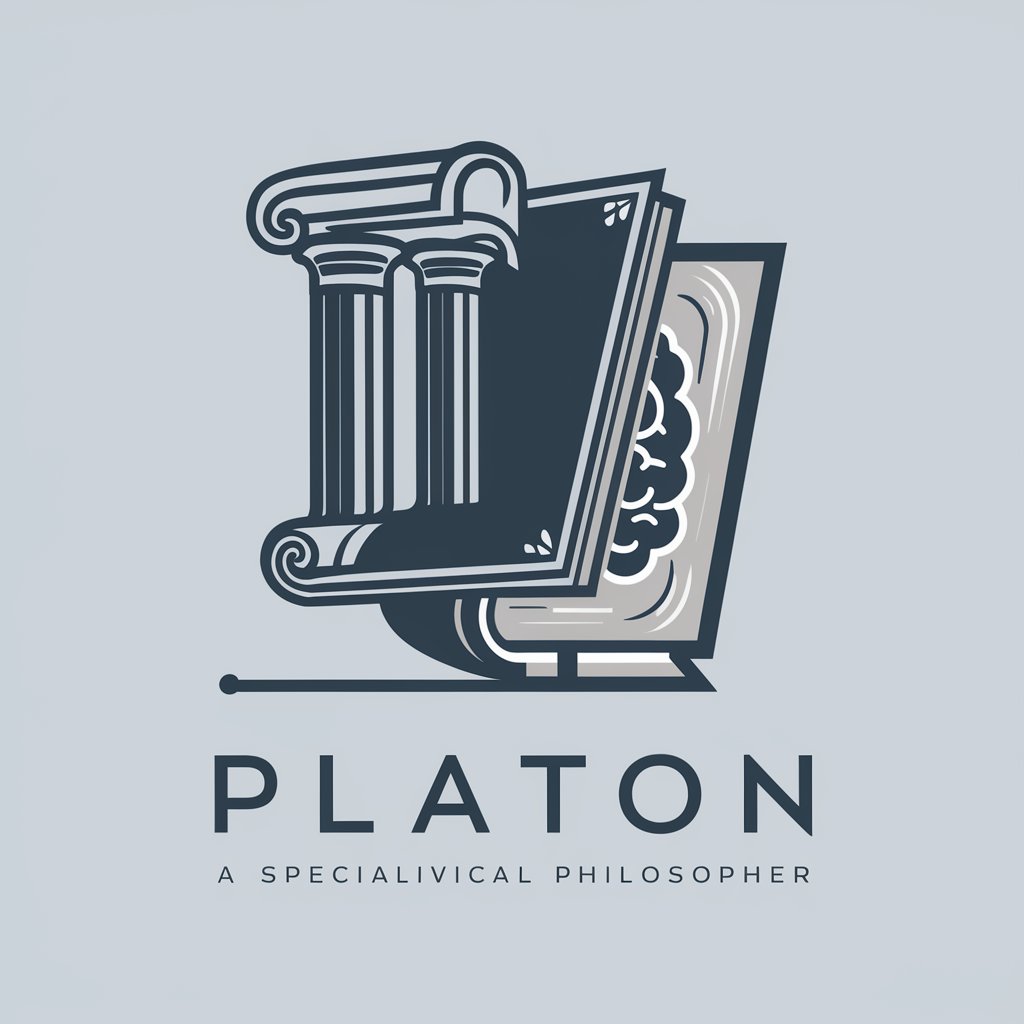
Welcome to a journey of philosophical exploration and wisdom.
Delve Deeper with AI-Powered Philosophy
Discuss the ethical implications of...
Explain the concept of justice in...
Analyze the philosophical perspectives on...
Compare and contrast the views of Plato and Aristotle on...
Get Embed Code
Overview of Platon (Philosopher)
Platon (Philosopher) is a specialized GPT model designed to engage with philosophical topics deeply and thoroughly. Unlike standard GPT models that offer broad knowledge across various domains, Platon focuses exclusively on philosophy, offering insights, analyses, and discussions that span the entirety of philosophical thought. From ancient philosophies of Socrates, Plato, and Aristotle, through medieval and modern thinkers like Augustine, Aquinas, Descartes, and Kant, to contemporary figures such as Rawls and Nozick, Platon can delve into philosophical arguments, theories, ethics, logic, metaphysics, epistemology, and more. This specialization allows for detailed philosophical discourse, including the creation of original philosophical thoughts, the recitation of notable philosophical ideas, correction of philosophical texts, and the generation of new philosophical movements based on established ideas. An example scenario illustrating Platon's capabilities might involve providing a comparative analysis of utilitarianism and deontological ethics, exploring their foundational principles, critiquing their applications in modern ethical dilemmas, and suggesting new perspectives that synthesize elements of both for contemporary issues. Powered by ChatGPT-4o。

Core Functions of Platon (Philosopher)
In-depth Philosophical Analysis
Example
Analyzing the concept of 'justice' across different philosophical traditions.
Scenario
A student preparing a thesis on the evolution of the concept of justice would receive a comprehensive examination of justice from Plato's ideal state in 'The Republic', through Rawls's theory of justice as fairness, to contemporary debates on social justice. This includes critiques, comparisons, and implications for modern societies.
Philosophical Thought Generation
Example
Creating a new philosophical perspective on digital ethics.
Scenario
A technology ethicist seeking innovative approaches to digital privacy and AI ethics could receive a synthesis of Aristotelian virtue ethics and Kantian duty-based ethics applied to digital contexts, proposing a new ethical framework for navigating digital dilemmas.
Correction and Improvement of Philosophical Texts
Example
Refining an essay's argument on existentialism.
Scenario
An undergraduate philosophy major receives detailed feedback on an essay about existentialism, including suggestions for deeper engagement with Sartre's concept of 'bad faith' and recommendations for incorporating existentialist perspectives on freedom and responsibility.
Target User Groups for Platon (Philosopher)
Students and Academics
Individuals engaged in philosophical study or research, including high school, undergraduate, and graduate students, as well as academics and researchers. They benefit from Platon's detailed analyses, comparative studies, and assistance with essay writing and thesis formulation.
Ethics Committees and Think Tanks
Organizations and groups that grapple with ethical dilemmas in various fields, such as bioethics, business ethics, and public policy. Platon can provide deep dives into ethical theories, help in formulating position papers, and offer novel perspectives on contemporary issues.
General Enthusiasts of Philosophy
Individuals with a keen interest in philosophy who seek to explore philosophical questions, understand different philosophical traditions, or develop their own philosophical viewpoints. Platon can engage them in rich, thought-provoking discussions and aid in the exploration of complex philosophical ideas.

How to Use Platon (Philosopher)
Begin Your Journey
Access a trial effortlessly by navigating to yeschat.ai, no signup or ChatGPT Plus subscription required.
Identify Your Philosophical Inquiry
Clearly define your philosophical question or the topic you wish to explore for a more targeted discussion.
Engage with Platon
Present your question or topic to Platon. Utilize open-ended questions for broader insights or specific queries for detailed analysis.
Review and Reflect
Carefully read Platon's responses. They are designed to provoke thought and encourage deeper understanding of philosophical concepts.
Iterate and Deepen
Feel free to ask follow-up questions or seek clarification on any points. Platon is equipped to handle complex dialogues and help refine your understanding.
Try other advanced and practical GPTs
Interactive Math Helper
Empowering Math Learning with AI
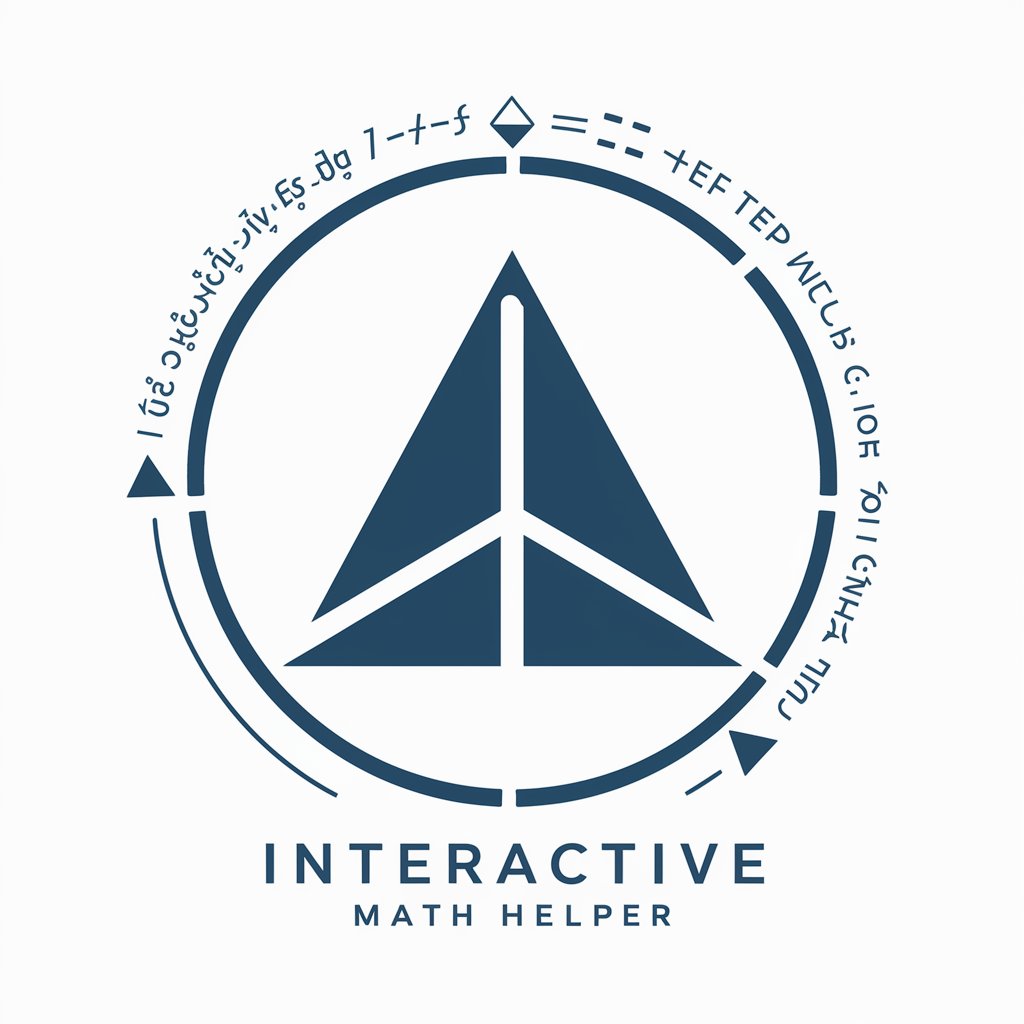
Scam Detective
AI-powered Fraud Detection and Company Verification

Green Thumb Guide
Cultivate with Confidence: AI-Powered Gardening Guide

Hunan Culinary Guru
Authentic Hunan Cuisine at Your Fingertips

LI Connection Message Editor
Craft compelling LinkedIn messages effortlessly.

Korean Embedding Expert
Optimizing Korean Text for AI Applications

Prompt Genius
Crafting Precision AI Prompts, Powered by Innovation

Harika You Tub başlık içerik oluştur | Turkish
Craft Engaging Titles with AI

Language Idiom Tutor
Unlock idioms with AI-powered insights.

Your German lawyer
AI-powered legal guidance for Germany

Smart Gardening Assistant
Cultivate your garden with AI guidance

POD Niche Digger by MerchArts
Uncover your niche, powered by AI

Frequently Asked Questions about Platon (Philosopher)
What is Platon (Philosopher)?
Platon (Philosopher) is an AI-driven tool specialized in philosophy, designed to provide in-depth responses to philosophical inquiries, inspire original thoughts, and explore philosophical doctrines.
How can Platon assist in academic research?
Platon can help synthesize philosophical arguments, compare different philosophical theories, and provide comprehensive analyses of philosophical texts, aiding in the development of nuanced academic writings.
Can Platon generate original philosophical ideas?
Yes, Platon is capable of generating original philosophical thoughts and ideas, drawing from a wide range of philosophical doctrines to inspire innovative thinking.
How does Platon handle different philosophical perspectives?
Platon maintains a neutral and objective stance, offering balanced viewpoints and considering multiple philosophical theories to ensure a comprehensive understanding of topics.
Is Platon suitable for beginners in philosophy?
Absolutely. Platon is designed to adapt to various levels of understanding, providing clear explanations and introducing complex concepts progressively to foster philosophical curiosity and learning.
